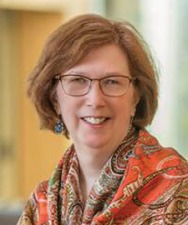
As the Program Director of both the Geriatrics Workforce Enhancement Program and Geriatrics Fellowship at Baystate Medical Center, Dr. Maura J. Brennan is well-versed in how this medical specialty can assist certain elders to maximize their quality of care.
To better understand how a geriatrician might assist individuals - and family caregivers - to improve an individual’s medical care and quality of life, Prime reached out to Brennan with some basic questions about this area of medicine. Here’s what she shared:
“Geriatricians are doctors who have done additional training to specialize in the care of older adults. This is in addition to the training in general internal medicine or family medicine which all primary care doctors receive. Geriatricians may work in many sites. They may provide primary care in outpatient offices, nursing homes or as members of home care teams. They also work in hospitals and as consultants offering expert advice to primary care physicians. They often teach other clinicians and help to design and lead programs caring for older adults.
They provide broad care and counseling for patients and usually work in interprofessional teams with nurses, pharmacists, social workers and others. Much of their attention is devoted to assessing and managing the “5 Ms” which include “What Matters Most” to patients, Medications (with an emphasis on decreasing numbers of drugs and avoiding side effects), Mentation (memory loss, depression, etc.), Mobility (avoiding falls and keeping patients moving) and Multiple Medical Problems (balancing the treatments of many problems and prioritizing where to focus efforts.) The goal is to provide care which gives patients the best quality of life and stresses what is important to them.”
“Geriatricians generally see patients who are over the age of 65 but there is no hard and fast cutoff. I have sometimes consulted on patients in their 30s if they truly had many of the problems of older adults. Most patients cared for in geriatrics practices are in their 70s and some of our patients are over a hundred years old. There are not enough geriatricians to provide primary care for all older adults, so geriatrics practices generally focus on the most complex older adults or those with problems of aging which are challenging to care for in a traditional practice. Some of these problems may include polypharmacy (long and complex drug lists), fatigue and weight loss, falls, memory loss and dementia, and incontinence.”
“Since geriatricians generally work in teams, the benefits often result from that full team support. Geriatricians also generally spend more time with patients than the usual primary care physicians can. Most importantly, they are experts in the care of older adults. They will prioritize the patients’ goals and are quick to recognize drug side effects. They know how to maximize community supports/organizations to keep patients as independent as possible; they can identify and evaluate any early signs of memory loss or depression. They take a broad approach and include families in decision making, assuming patients agree with this approach. They help older adults to plan for the kind of care they want now and in coming years. They individualize care and stress independence and quality of life. They know that “one size does not fit all” and they do not have the same treatment goals for all their patients. For example, if a young person has diabetes doctors generally try to get blood sugar levels very tightly controlled. This is important to prevent complications in coming years and decades. However, if a patient is 85 years old, has several other medical problems and is unlikely to live more than another three to four years the blood sugar goal does not need to be so strict and the patient may be able to enjoy more foods that he likes and check his blood sugar less frequently.”